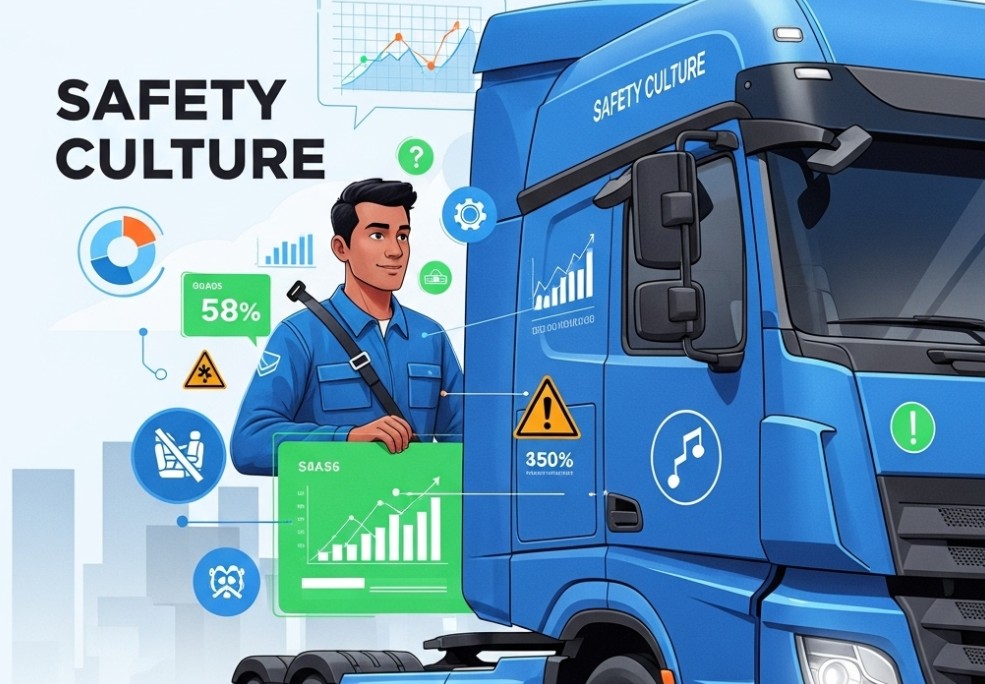In the fast-paced world of road transport, the concept of safety culture is often discussed but less frequently understood. It’s more than just a set of rules; it’s the very fabric of how an organization approaches safety, influencing every decision and action. As Google aptly puts it, safety culture is “a set of shared values, norms, and beliefs within an organization that influence how employees think and act regarding occupational health and safety.” For road transport companies, this means going beyond basic training and embedding safety into the DNA of daily operations.
The Pillars of a Strong Safety Culture
Building a true safety culture requires a holistic approach, focusing on several key areas:
- Management Commitment: Safety starts at the top. When leadership actively supports and invests in safety – be it through allocating resources, purchasing modern equipment, or clearly communicating safety policies – it sends a powerful message throughout the organization.
- Continuous Training and Education: The road is ever-changing, and so too should be the training for drivers and employees. Regular programs on safety practices, new regulations, and emergency procedures are vital to keep everyone prepared for any situation.
- Open Communication Channels: For a safety culture to thrive, employees must feel empowered to voice concerns without fear of reprisal. Fostering an environment where drivers can openly report safety issues, or even forming dedicated safety task forces, encourages collective responsibility.
- Rewarding Safe Behaviors: Acknowledging and rewarding drivers for their commitment to safety (think quarterly or semi-annual bonuses) provides tangible motivation and reinforces the importance of safe practices.
Technology: The Game Changer in Safety Data
The advent of modern technology, particularly in data acquisition and analysis, is revolutionizing how we approach safety in transport. Access to advanced data on everything from vehicle maintenance to driver behavior and compliance allows for incredibly precise and timely decision-making.
For instance, real-time data analysis of driver performance, vehicle metrics, and adherence to regulations enables quick identification and mitigation of potential hazards. Furthermore, Electronic Logging Device (ELD) systems provide accurate, tamper-proof records of driver hours, significantly reducing the risk of logbook falsification and promoting adherence to hours-of-service rules.
It’s also crucial to view each truck as its own individual safety hub. Advanced telematics systems can monitor specific driving parameters like speed and braking force, allowing companies to tailor safety strategies to the unique risks associated with each vehicle.
The Power of Partnership: Bridging the Data Gap
For many transport companies, especially those without in-house data analysis expertise, making sense of this wealth of information can be daunting. This is where trusted partners specializing in resource management become invaluable. These modern resource management firms do more than just assist with purchasing and disposal; they provide comprehensive insights into truck utilization, maintenance needs, safety performance, and compliance violations.
By leveraging sophisticated data analytics, these partners can identify emerging trends and the root causes of problems, ultimately leading to significant improvements in fleet safety performance.
Driving Towards a Safer Future
Safety in transport is an ongoing journey that demands a proactive and adaptive approach. Building a robust safety culture – grounded in leadership commitment, continuous education, and open communication – forms the bedrock of this journey. Supplementing this foundation with advanced data utilization and strategic partnerships enables effective monitoring, early threat identification, and overall fleet optimization. By treating each truck as a distinct safety center, companies can fine-tune their strategies, ultimately protecting their workforce, minimizing accidents, and securing long-term success.
All About Trucks & Translab wish you a wide and safe road! We put Truckers first!
